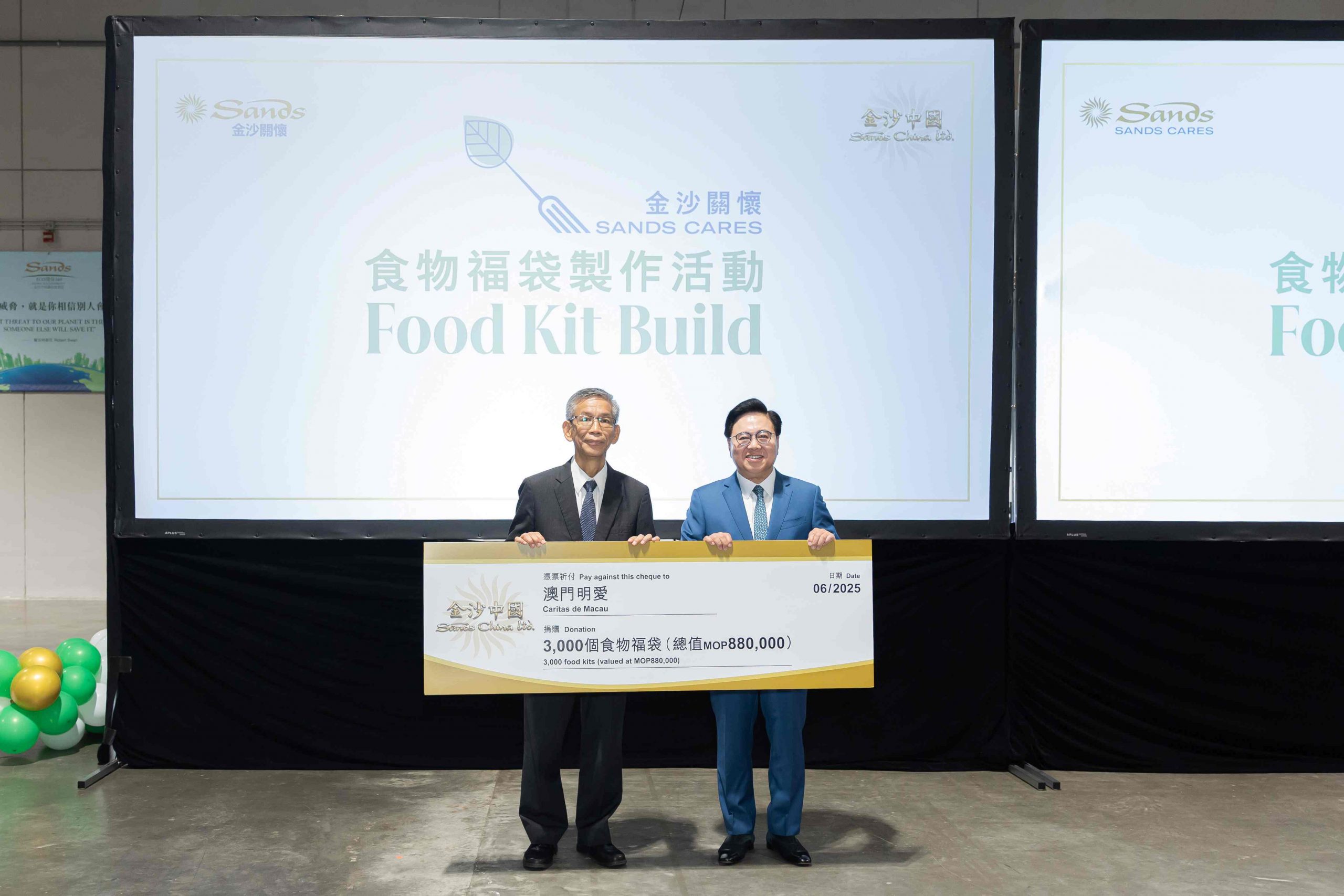Marco Carvalho
Starting next year, the Macau Ricci Institute (MRI) will acknowledge small and medium-size enterprises (SME’s) from Macau and Hong Kong that have distinguished themselves by good governance, and good environmental and social practices. This joint creation of the Macau Ricci Institute and Hong Kong’s Woofoo Foundation will see the inaugural Deignan Award conferred on March 25th, 2023.
Officially announced this Friday, the Deignan Award aims to reward companies and entrepreneurship projects that manage to combine entrepreneurial success with sound corporate social responsibility practices, and a culture of conformity with public policies and regulations. Concepts such as compliance, corporate governance and business ethics are key aspects in defining the winner of the award, which should be conferred for the first time ever in March next year.
Father Stephan Rothlin, the director of the Macau Ricci Institute, points out, “The award presupposes obviously that the candidates are diligent with compliance. However, a key success factor is to demonstrate that a SME has made some significant progress in a certain area of responsible entrepreneurship. It is thus not expected to excel in all the areas of corporate social responsibility. Nevertheless, a key point is to demonstrate that ethics and law are enhanced as key factors for business and implemented in all the levels of an enterprise.”
Established by the Jesuit think tank in partnership with Hong Kong’s Woofoo Foundation, the Award has the Bishop of Hong Kong, D. Stephen Chow Sau-yan as its main patron and honors Father Alfred Deignan. Once the head of the Society of Jesus in Hong Kong, Irish-born Father Deignan, who died in 2018, educated successive generations of students in the former British colony, always with a particular focus on values such as integrity, honesty, forgiveness and human dignity. “I always felt that the strongest inspiration for ethical behaviour comes when leaders walk the talk and stick to their values,” says Father Rothlin. “As I had the chance to work with Fr. Alfred Deignan, SJ (1927-1918) over many years on different projects of business ethics, I felt that the example of this deeply compassionate educator, with a passion for sharing key values of integrity, compassion and honesty, left a decisive mark in various circles of society. I felt, therefore, that in these times of crisis, the Deignan Award would be a very inspiring way to demonstrate the positive impact of sound values, which could light a flame, and make a difference in very demanding and competitive marketplaces,” underlines Father Rothlin, who is also a researcher at the Faculty of Business and Law of the University of Saint Joseph.
China on the horizon
The Deignan Award for Responsible Entrepreneurship aims, fundamentally, to encourage business practices guided by the principles of justice, solidarity and complementarity, as well as encourage the adoption of sustainable business models. The definition of the selection criteria for the candidate companies will be defined by a steering committee made up of specialists from different walks of life on both sides of the Pearl River Delta. The selection of the six finalist companies – three from Macau and three from Hong Kong – will be made by two different panels of judges, one for each Special Administrative Region. In Macau, the local panel will include personalities such as businessman António Trindade, lawyer Rui Cunha or the Secretary General of Caritas Macau, Paul Pun Chi-meng.
“A unique feature of the Deignan Award is the strong link between entrepreneurship and ethics. There is often a misunderstanding that CSR is in the way of business success as a kind of road block. This seems to be a misleading conception. The Deignan Award will bring empirical evidence as to how much social innovation and entrepreneurship we urgently need to be enhanced through sound business practices,” the director of the Macau Ricci Institute states.
The Award, which does not have a monetary nature, will only acknowledge at an initial stage small and medium-size enterprises from Macau and Hong Kong. Father Stephan Rothlin does not rule out, however, the possibility of encompassing, in the future, companies and entrepreneurial projects in the Greater Bay or even throughout mainland China. “The usual dynamic is to aim to lay a firm foundation in the first and second Awards, with a clear communication strategy about the aim and the methods. This will be the basis to extend and develop the Award so that it can gain prominence beyond Hong Kong and Macau in the Greater Bay Area,” Father Rothlin explains.
He tells O Clarim, “With our colleagues, we concluded that it may be prudent to start first in Macau and Hong Kong, and make all the possible efforts to communicate the values there. However, since the very beginning we had in mind that SMEs from mainland China will be able to participate at a later stage.”


 Follow
Follow


